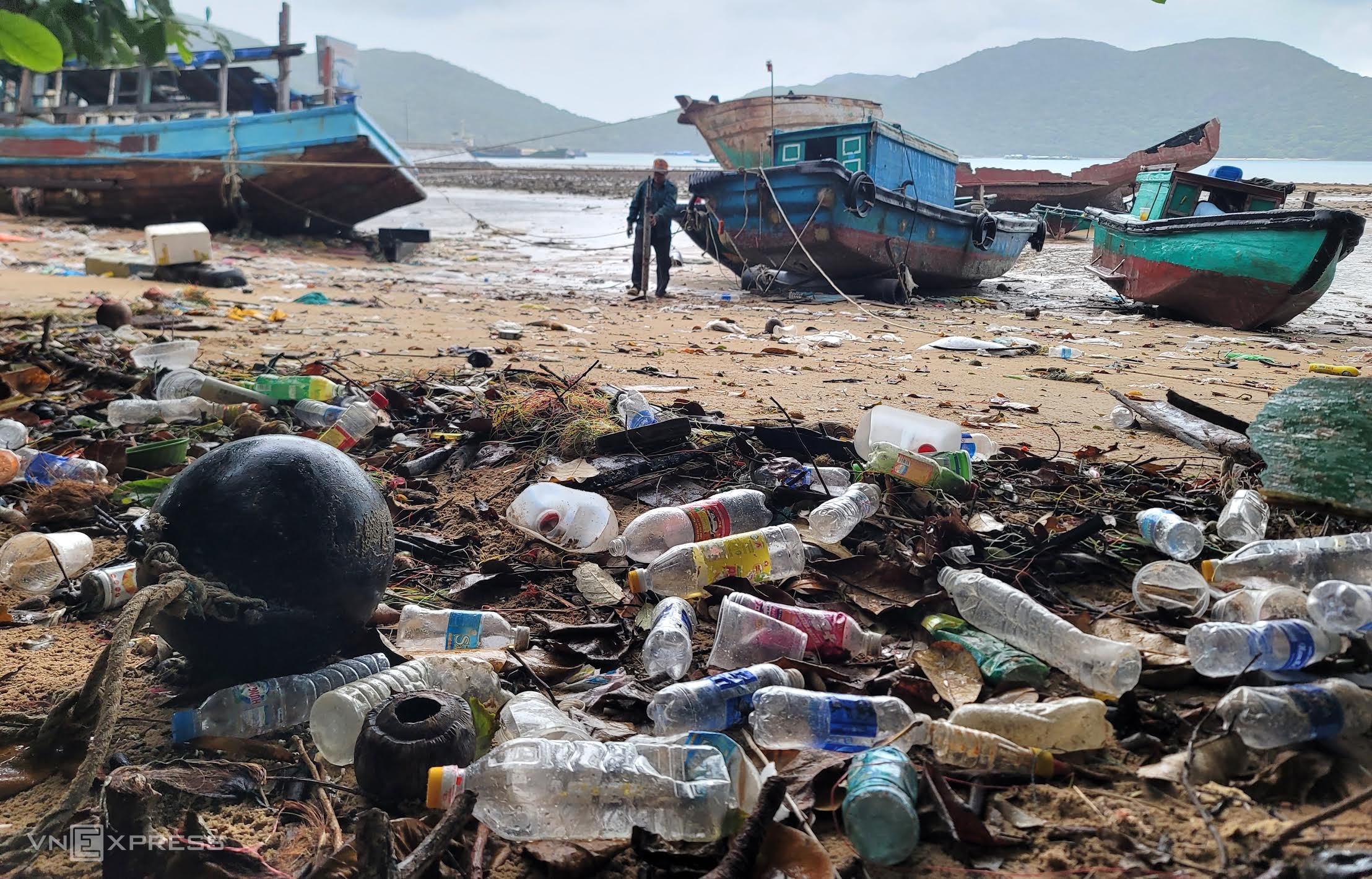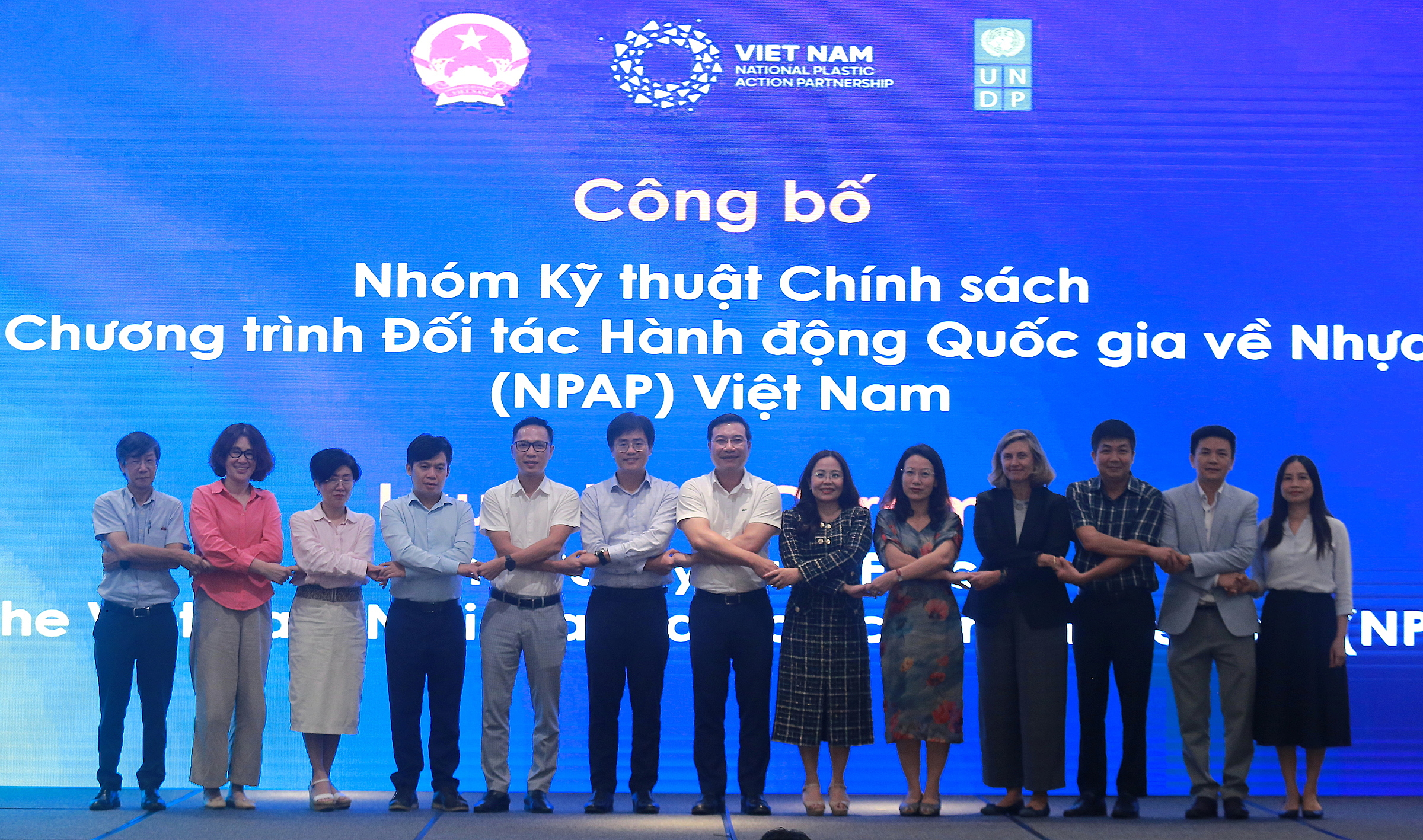At a workshop on the National Plastic Action Partnership (NPAP) program, co-hosted by the Ministry of Agriculture and Rural Development and the United Nations Development Programme (UNDP) on 9/7, representatives from KPMG cited a World Bank (WB) report stating that Vietnam is one of the world's top contributors to ocean plastic pollution, consistently ranking among the top 10 countries for plastic waste leakage.
According to WB estimates, Vietnam generated about 3.7 million tons of plastic waste in 2018, and this figure is projected to reach 7.6 million tons by 2030. Only 0.4 million tons of this is recycled, while most of the plastic is burned, dumped, or buried.
 |
Plastic waste on the coast of Con Dao, 11/2023. Photo: Gia Chinh |
Plastic waste on the coast of Con Dao, 11/2023. Photo: Gia Chinh
To achieve plastic reduction targets, such as reducing plastic leakage by over 43% by 2030 and achieving a 75% reduction in marine litter, KPMG estimates that approximately $8-9 billion in funding will be required over the next five years.
Of this, $2-2.5 billion would be used to reduce and replace plastic at the source; $1.4-2 billion for plastic collection and sorting; $2.8-3.4 billion for recycling; about $1 billion for interventions such as incineration and composting; and $700-900 million for final disposal.
The research team estimates a funding gap of approximately $6-7 billion after deducting contributions from the government, multilateral and bilateral cooperation, and the private sector.
To address this shortfall, the expert group has put forward six recommendations for Vietnam: reforming and optimizing the extended producer responsibility framework; strengthening quality standards and certification; promoting investment in innovation in recycled and alternative plastics; formalizing and supporting the informal sector; establishing a scalable recycling ecosystem through industrial clusters; and enhancing urban and rural waste management.
 |
NPAP policy group. Photo: Gia Chinh |
NPAP policy group. Photo: Gia Chinh
Ramla Khalidi, UNDP Resident Representative in Vietnam, noted that while a decade ago Vietnam was often ranked among the world's top plastic polluters, the narrative is changing, not because the problem has been fully solved, but because Vietnam is taking measurable and concrete steps to address it.
"Transitioning to a truly sustainable partnership will take time. This requires effective operating systems, strong leadership at the national level, and stable financing. However, it is entirely feasible if all parties share responsibility and maintain cooperation," Khalidi said.
The workshop also announced the establishment of the NPAP Policy Technical Group. The group brings together 15 members, including policymakers, businesses, researchers, and development partners. Ho Kien Trung, Deputy Director of the Environment Department (Ministry of Agriculture and Rural Development), will lead the group.
Trung shared that the technical group will play a crucial role in shaping Vietnam's plastic circularity roadmap. The group's activities will strengthen the policy foundation needed for long-term, systemic changes and contribute to Vietnam's commitment to building a sustainable plastic circular economy.
Launched in 2020, NPAP Vietnam has connected over 200 organizations and supported more than 160 projects to reduce plastic pollution. The initiative has also promoted over 570 innovative solutions, mobilizing a total investment of over $1 million.
Gia Chinh












